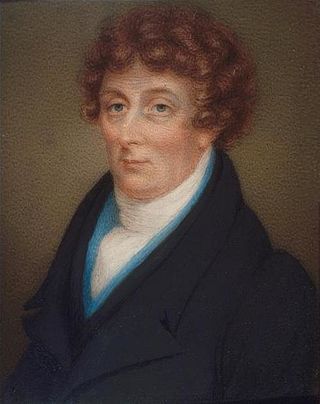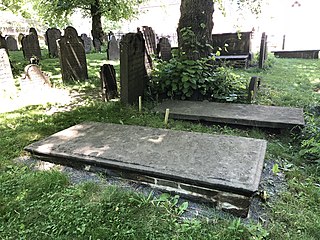Career
At the end of the war, he returned to London and lobbied for a grant of land in Nova Scotia. He became part of a group of loyalists urging that Nova Scotia be partitioned, which led to the creation of New Brunswick. Chipman was named solicitor general for the new province. He prepared a charter for the city of Saint John for Governor Thomas Carleton and served as recorder for the city from 1785 to 1809, which also made him a justice of the peace. In 1785, he was one of the founders of the New Brunswick bar and set up practice in Saint John. Chipman's clients included Benedict Arnold. Also in 1785, he ran as a pro-government candidate for the Legislative Assembly and was elected, although he is said to have the support of the local sheriff in the inspection of the ballots; he was defeated in the 1793 election for the 2nd New Brunswick Legislature, but returned in Northumberland County. He was defeated again in 1795.
In 1800, he pleaded the case of Nancy Morton, an enslaved Black woman, in R v Jones ; the court was divided with respect to Chipman's assertion that slavery was illegal in New Brunswick, so no decision was made and the woman was returned to her master. Chipman also supported the settlement of several hundred Black refugees in the province following the War of 1812.
He was also a gentleman farmer and was known for the quality of his potato crops.
Chipman represented the British in the negotiations held to establish the province's boundary with the state of Maine. In 1806, he was named to the Council. He was named a puisne judge in the province's Supreme Court in 1808. In 1815, he was named to a second commission charged with settling the boundary with Maine as it applied to islands in Passamaquoddy Bay. In 1823, Chipman was named colonial administrator after the death of Lieutenant Governor George Stracey Smyth; he died in office at Fredericton in 1824.

Sampson Salter Blowers was a noted North American lawyer, Loyalist and jurist from Nova Scotia who, along with Chief Justice Thomas Andrew Lumisden Strange, waged "judicial war" in his efforts to free Black Nova Scotian slaves from their owners, leading to the decline of slavery in Nova Scotia.

Events from the year 1824 in Canada.

Events from the year 1754 in Canada.

Events from the year 1785 in Canada.

The Province of Massachusetts Bay was a colony in New England which became one of the thirteen original states of the United States. It was chartered on October 7, 1691, by William III and Mary II, the joint monarchs of the kingdoms of England, Scotland, and Ireland, and was based in the merging of several earlier British colonies in New England. The charter took effect on May 14, 1692, and included the Massachusetts Bay Colony, the Plymouth Colony, the Province of Maine, Martha's Vineyard, Nantucket, Nova Scotia, and New Brunswick; the Commonwealth of Massachusetts is the direct successor. Maine has been a separate state since 1820, and Nova Scotia and New Brunswick are now Canadian provinces, having been part of the colony only until 1697.
Edward Winslow was a loyalist officer and New Brunswick judge and official.

Ward Chipman was a lawyer, judge and political figure in the pre-Confederation Province of New Brunswick, Canada.
Thomas Henry Barclay was an American lawyer who became one of the United Empire Loyalists in Nova Scotia and served in the colony's government.
William Botsford was a lawyer, judge and political figure in the pre-Confederation Province of New Brunswick, Canada.
Jonathan Bliss was a lawyer, judge and political figure in New Brunswick. He represented St. John County in the Legislative Assembly of New Brunswick from 1786 to 1792 and from 1796 to 1802.
Robert Parker was a lawyer, judge and political figure in New Brunswick. He represented St. John County in the Legislative Assembly of New Brunswick from 1826 to 1830.
Charles Jeffery Peters was a lawyer, judge and politician in New Brunswick.

Sir James Monk was Chief Justice of Lower Canada. Monk played a significant role in the abolition of slavery in British North America, when as Chief Justice he rendered a series of decisions regarding escaped slaves that 'while not technically abolishing slavery rendered it innocuous'. 'The slave could not be compelled to serve longer than he would, and ... might leave his master at will.'
John Coffin was a British army officer, merchant, judge, enslaver and political figure in New Brunswick. He represented King's County in the Legislative Assembly of New Brunswick from 1785 to 1816.

Formally known as "His Majesty's Council of Nova Scotia", the Nova Scotia Council (1720–1838) was the original British administrative, legislative and judicial body in Nova Scotia. The Nova Scotia Council was also known as the Annapolis Council and the Halifax Council. After 1749, when the judicial courts were established, the Nova Scotia Council was limited to administrative and legislative powers.

New Ireland was a Crown colony of the Kingdom of Great Britain twice established in modern-day Maine after British forces captured the area during the American Revolutionary War and again during the War of 1812. The colony lasted four years during the Revolution, and eight months during the War of 1812. At the end of each war the British ceded the land to the United States under the terms of the Treaty of Paris and the Treaty of Ghent, respectively.

Benjamin Kent (1708–1788) was a Massachusetts Attorney General (1776–1777) and then acting Attorney General during much of Robert Treat Paine's tenure (1777–1785). He was appointed seven successive terms. Prior to the American Revolution, Kent was notable for his representation of slaves suing their masters for their freedom, which contributed to the demise of slavery in Massachusetts. He was a member of the North End Caucus and prominent member of the Sons of Liberty, which formed to protest the passage of the Stamp Act of 1765. The efforts of the Sons of Liberty created the foundation for the Boston Tea Party. Kent called for independence early in the American Revolution.
R v Jones was a 1799 court case challenging the legality of slavery in New Brunswick.
Nancy Morton was a key figure in the abolition of slavery in New Brunswick, Canada. Morton was an enslaved woman who sought to legally challenge slavery and earn her freedom in the nineteenth century by presenting a case to a court in Fredericton, New Brunswick.
This page is based on this
Wikipedia article Text is available under the
CC BY-SA 4.0 license; additional terms may apply.
Images, videos and audio are available under their respective licenses.









